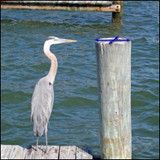For all the boating enthusiasts out there, boating excursions don’t end just because the weather has changed. Some extra precautions must be taken to ensure safety in cold water temperatures. Consider these tips:
Layer Clothing
Dress according to the water’s temperature, not the air’s. You may need to wear multiple layers to keep your skin protected from the cold air and water. Base layers made of synthetic materials that wick away moisture are helpful. Always wear a hat when boating in the cold. Keep extra clothing on board in case anyone goes overboard.
Pack Food
Staying hydrated and avoiding hunger is a vital part of maintaining your internal temperature as well as staying alert and energized. Starving your body can cause you to get colder easier, as filling your body with food helps you maintain homeostasis. If you are going on a cold water excursion, pack lots of water, foods high in protein, and a thermos of something warm to drink.
Life Jacket
Wearing a properly fitted life jacket is crucial regardless of what type of boating you plan on doing. If your life jacket is too loose, it can cause strangulation or may fail to keep you afloat with your head above water. A life jacket that fits correctly can be a lifesaving item as well as an extra layer of warmth in cold weather. Check your life jacket’s expiration date before going out on your boat.
If someone on board were to fall into cold water, it is important to know how the body may react. The 4 stages of cold water immersion are as follows:
Cold Shock
When a person first hits cold water, the initial reaction is shock and panic. Many people will gasp as a reflex; if this happens underwater, the person could choke or drown. They may experience faster heart rates, muscle spasms, and hyperventilation. It is important to stay afloat during this time with the help of a life jacket. Try to regain control of your breathing and keep your head above water.
Swim Failure
Being immersed in cold water can cause loss of muscle coordination within 30 minutes, making it impossible to swim. Long exposure may have a paralyzing effect on the muscles, so do not attempt to swim towards help. Allow your life jacket to keep you afloat.
Hypothermia
Your body may begin to experience hypothermia after 30 minutes of being immersed in cold water. Hypothermia can cause the loss of muscular function, coordination, mental function, and may eventually lead to losing consciousness.
Post Rescue Collapse
After the victim has been rescued, their blood pressure may drop due to the surrounding cold air and changing body position. They may experience lung damage or heart issues with the cold blood from the arms and legs returning to the body’s core. Seek professional medical attention as soon as possible.
H.E.L.P Yourself
If you have fallen overboard into cold water, follow the H.E.L.P technique to reduce internal heat loss and delay hypothermia. The H.E.L.P technique, or Heat Escape Lessening Posture, consists of pulling your cinch cords on your life jacket, then cross your arms tightly across your chest, bend your knees, and bring them up to your chest. Float in this position with your head above water. If multiple people have fallen overboard, huddle together with everyone facing inwards, linking arms over shoulders.
Boat Lift Warehouse
Boat Lift Warehouse in Snow Hill, NC has been serving customers worldwide since 2004. We provide you with boat lifts, boat lift motors, parts, and accessories and we are dedicated to finding the right boat lift solution for you. Contact us today for all your boat lift and marine accessory needs.



